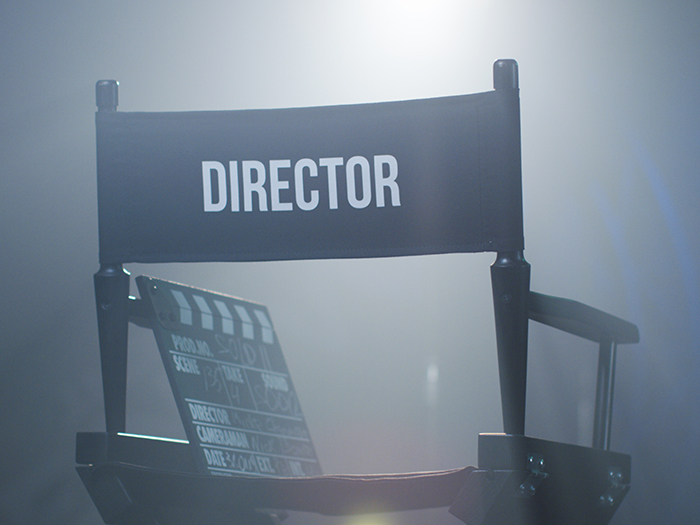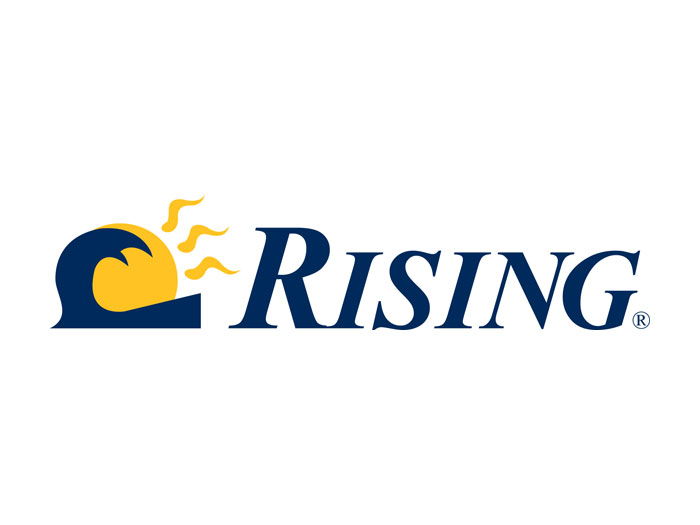View From the Bench
Workers’ Comp Docket
Evidence Proves Work Caused Heart Attack
Bolles v. Midwest Sheet Metal Co., Inc., No. A-13-203 (Neb. Ct. App. 03/11/14)
Ruling: The Nebraska Court of Appeals held that a foreman’s widow was entitled to benefits because the evidence established that the foreman’s work caused his fatal heart attack.
What it means: In Nebraska, an heart injury caused by exertion to which a worker’s preexisting heart disease contributes is compensable only if the worker shows that the exertion is greater than that experienced during the ordinary nonemployment life of the worker or any other person.
Summary: On a hot day, a foreman for Midwest Sheet Metal worked on replacing the compressor in an air conditioning unit. The foreman climbed inside the unit and worked on it for over an hour. The compressor that had to be removed weighed 400 pounds. The foreman went inside the unit a second time to guide the new compressor into place. After the new compressor was in place, the foreman left the work site to pick up additional materials to finish the job. When he returned, he continued working on the air conditioning unit for 15 minutes to an hour. He suffered a heart attack and subsequently died. The foreman had a history of heart problems. The foreman’s widow sought benefits. The Nebraska Court of Appeals held that the widow was entitled to benefits.
The court found that the evidence established legal causation because the injury arose out of the employment. The worker had engaged in physical labor in direct sunlight in high temperatures with little airflow. The evidence showed that in his nonemployment life the foreman did not exert himself. The court found that the foreman’s work activities constituted an exertion greater than that experienced during his ordinary nonemployment life.
The evidence also established medical causation. Medical causation is established by showing that the employment contributed in some material and substantial degree to the injury. A medical expert indicated that he reviewed depositions of the foreman’s coworkers, climatological data, the foreman’s medical records, and ambulance records. The expert also noted the work performed by the foreman. The expert opined that the stress of working in direct sunlight and the high temperatures and humidity were a contributing cause to the heart attack.
The court pointed out that the officer’s medical records showed that he had rashes and upper respiratory complaints before the construction. Nothing in the medical records established a causal connection between the rashes and the presence of a washer and dryer in the bedroom. The court pointed out that the officer did not have an upper respiratory infection until nine months after the construction was completed.
The court said it was “clear” that everything in the bedroom kept maneuverable space to a minimum. The officer’s lack of stability made maneuvering from the bed to other areas of the house difficult. The court said that removing the washer and dryer from the room would not resolve the problem. There was also no evidence that the presence of the washer and dryer contributed to the officer’s fall.
Medical Evidence Supports Manager’s Detox From Narcotic Medication
Anderson v. Industrial Commission of Arizona, No. 2 CA-IC 2013-0015 (Ariz. Ct. App. 02/28/14, unpublished)
Ruling: In an unpublished decision, the Arizona Court of Appeals held that a manager had to be weaned from narcotic medication and evaluated.
What it means: In Arizona, a carrier is not precluded from arguing at a hearing that a worker’s previously authorized benefits should be adjusted.
Summary: A ranch manager was injured when a horse fell on him. His employer’s insurance carrier accepted his workers’ compensation claim. The carrier issued a notice of supportive medical maintenance benefits authorizing narcotics “while the need for such supportive care continues, or until further notice.” Later, the carrier issued another notice of supportive medical maintenance benefits that described a “detoxification” or “weaning program” after which no further medications would be authorized. The manager argued that the supportive care award was inadequate. The Arizona Court of Appeals held that the manager had to be weaned from narcotic medications and evaluated.
The court rejected the manager’s argument that a supportive care award could not be changed absent proof of a change in a worker’s physical condition or available medical treatment. The court pointed out that the supportive care notice was not litigated and was voluntarily issued by the carrier. Such a notice can be adjusted at any time although the worker can request a hearing. The carrier was not precluded from arguing that the manager’s previously authorized benefits should be adjusted.
The court also found that an independent medical examiner’s opinion supported the award. The examiner discussed the manager’s continuing symptoms and the risks of continuing opiate therapy. The examiner explained that patients on high doses of opiates can have an improved condition when weaned from their medications. Even if the examiner accepted that the manager’s condition was work-related, it would not change his supportive care recommendation.
Causal Connection Between Accident and Hearing Loss
Sykes Enterprises, Inc v. Cox, No. 1182-13-3 (Va. Ct. App. 03/11/14, unpublished)
Ruling: In an unpublished decision, the Virginia Court of Appeals held that a worker was entitled to medical benefits for her hearing loss.
What it means: In Virginia, it is not necessary that the hearing loss be precisely contemporaneous with the work-related accident to establish a causal connection between the injury and the accident.
Summary: A worker for Sykes Enterprises tripped over a plastic rock display and landed on her face. Two days later, she woke up and couldn’t hear out of her right ear. Before the work-related accident, she did not experience problems hearing in her right ear. The worker sought benefits for hearing loss. The Virginia Court of Appeals held that she was entitled to medical benefits.
The court concluded that credible evidence supported a finding that the worker’s hearing loss was causally related to the work-related accident. The court pointed out that the timing of her hearing loss coincided with the work-related accident. The court explained that it was not necessary that the hearing loss be precisely contemporaneous with the work-related accident to establish a causal connection between the injury and the accident.
The court found that the worker’s physicians also provided evidence of a causal relationship. One physician said he was “certainly suspicious” that the worker’s hearing loss and tinnitus “may be post-traumatic.” Another physician opined that the ringing in the worker’s ear and her hearing loss was related to the workplace accident. Although a third physician opined that it was unlikely that injuries to the worker’s inner ear were caused by the work-related accident, the physician did not render an opinion that the work-related accident did not cause the hearing loss or tinnitus.
Employer Unable to Disprove Compensability of Telecommuter’s Injury
Chartis Claims Inc., 113 NYWCLR 257 (N.Y. W.C.B., Full Board 2014)
Ruling: The New York Workers’ Compensation Board affirmed a workers’ compensation law judge’s finding that a manager, who worked from home three days of her workweek, sustained an accidental injury in the course of her employment when she stood up from her desk, twisted her foot sideways while taking a step, and fractured her left foot.
What it means: In New York, where the carrier does not produce a witness or any evidence to rebut the worker’s assertion that she was working at home at the time of her injury, a rebuttable presumption arises that the injury arose out of her employment.
Summary: The board affirmed the WCLJ’s finding that a claims technical manager for Chartis Claims, who worked from home three days of her workweek, sustained an accidental injury in the course of her employment when she stood up from her desk, twisted her foot sideways while taking a step, and fractured her left foot. The carrier did not produce a witness or any evidence to rebut the manager’s assertion that she was working at home at the time of her injury. As the manager’s injury occurred in the course of her employment, a rebuttable presumption arose pursuant to the workers’ compensation law that the injury also arose out of her employment.
Because the carrier failed to produce any evidence rebutting the presumption, the preponderance of the evidence in the record supported the establishment of the claim.
Injury En Route to Employer-Provided Bus Can’t Be Denied
Kovacs v. Allegheny General Hospital, 29 PAWCLR 24 (Pa. W.C.A.B. 2013)
Ruling: The Pennsylvania Workers’ Compensation Appeal Board reversed the workers’ compensation judge’s finding that a worker was not in the course of employment when she slipped and fell on ice while leaving an employee parking lot to board an employer-provided shuttle bus.
What it means: In Pennsylvania, a worker not engaged in the furtherance of the employer’s business may be entitled to benefits if the injury occurred on the employer’s premises.
Summary: The board reversed the WCJ’s finding that a worker was not in the course of employment when she slipped and fell on ice while leaving an employee parking lot to board an employer-provided shuttle bus. Evidence indicated that Allegheny General Hospital provided the bus transportation to any employee. The free service to and from the workplace was an employee benefit. The hospital’s provision of the free service to all employees would make a worker’s injury occurring after boarding and before disembarking in the course and scope of her employment. In this case, the worker slipped just before boarding the bus.
The board found that a sign designating the drop off and pick up area of the sidewalk constituted a part of the premises. Also, the board determined that the worker’s presence was required at the bus stop a reasonable time before her shift to receive the employee benefit of bus transportation. The worker’s injury was caused by the operation of the bus at that location. Therefore, the worker’s work injury occurred in the course and scope of her employment.










